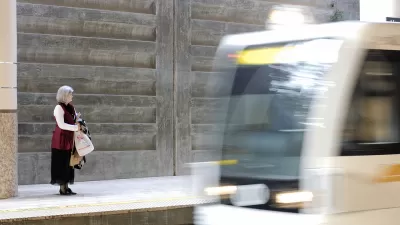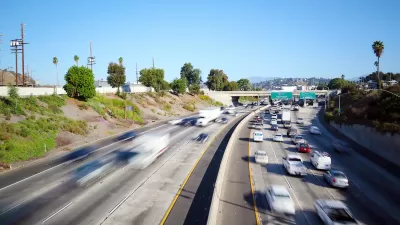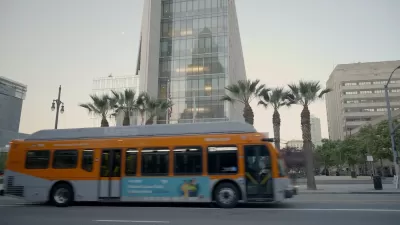More than 500 “activists, students and low-wage workers” spent their Saturday at a public hearing at the Los Angeles County Metropolitan Transportation Authority imploring the agency’s board not to raise fees.
“Officials with the Los Angeles County Metropolitan Transportation Authority have warned that the agency will face a $36-million operating budget shortfall in 2016, which could grow to $225 million in the next decade unless fares go up substantially,” reports Laura Nelson for the Los Angeles Times.
“Without higher fares, Metro will need to consider laying off nearly 1,000 employees and cutting 1 million hours of bus and rail service in 2015, agency staff members said.”
Metro claims that it needs to increase the share of its operating costs covered by fares. Metro’s ticket sales pay about one-quarter of system expenses, which ranks the lowest of any major U.S. transit agency.
In May, the Metro board will consider a number of schemes to raise fares. “One would raise the basic $1.50 bus and rail fare to $1.75 in September, to $2 in four years and $2.25 in 2021. Fares for seniors and the disabled would double to $1.10. A $75 monthly pass would increase to $100,” according to Nelson.
A public hearing held over the weekend attracted “more than 500 activists, students and low-wage workers” to make the case that the proposed fare increases would impact the people in the city that can least afford to bear new costs. For more insight on the mood at the hearing, check out Nelson’s live tweet of the March 29 meeting.
FULL STORY: Transit riders assail proposed Metro fare hike at public hearing

Alabama: Trump Terminates Settlements for Black Communities Harmed By Raw Sewage
Trump deemed the landmark civil rights agreement “illegal DEI and environmental justice policy.”

Planetizen Federal Action Tracker
A weekly monitor of how Trump’s orders and actions are impacting planners and planning in America.

The 120 Year Old Tiny Home Villages That Sheltered San Francisco’s Earthquake Refugees
More than a century ago, San Francisco mobilized to house thousands of residents displaced by the 1906 earthquake. Could their strategy offer a model for the present?

In Both Crashes and Crime, Public Transportation is Far Safer than Driving
Contrary to popular assumptions, public transportation has far lower crash and crime rates than automobile travel. For safer communities, improve and encourage transit travel.

Report: Zoning Reforms Should Complement Nashville’s Ambitious Transit Plan
Without reform, restrictive zoning codes will limit the impact of the city’s planned transit expansion and could exclude some of the residents who depend on transit the most.

Judge Orders Release of Frozen IRA, IIJA Funding
The decision is a victory for environmental groups who charged that freezing funds for critical infrastructure and disaster response programs caused “real and irreparable harm” to communities.
Urban Design for Planners 1: Software Tools
This six-course series explores essential urban design concepts using open source software and equips planners with the tools they need to participate fully in the urban design process.
Planning for Universal Design
Learn the tools for implementing Universal Design in planning regulations.
Clanton & Associates, Inc.
Jessamine County Fiscal Court
Institute for Housing and Urban Development Studies (IHS)
City of Grandview
Harvard GSD Executive Education
Toledo-Lucas County Plan Commissions
Salt Lake City
NYU Wagner Graduate School of Public Service





























